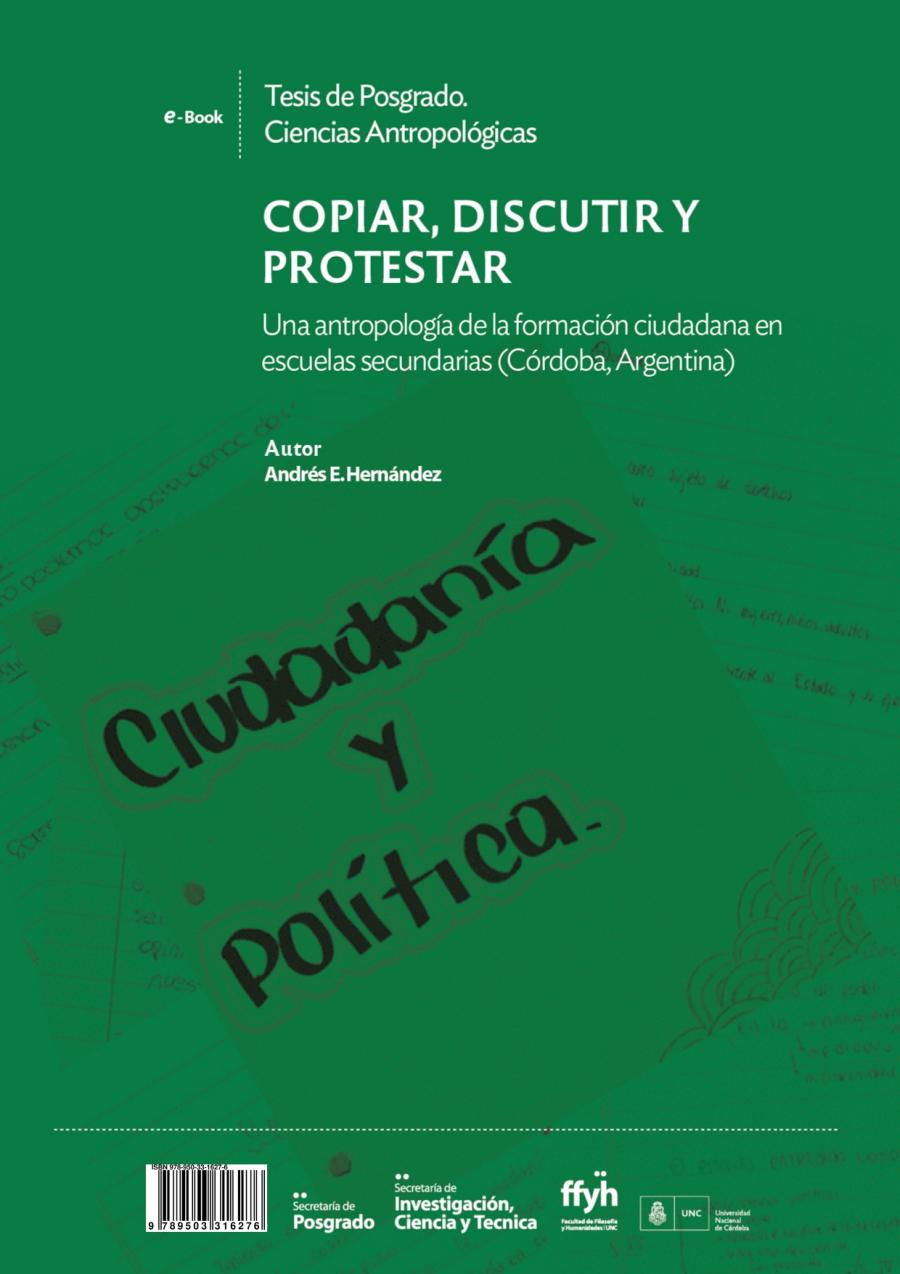Copy, discuss, and protest. An anthropology of civic education in secondary schools (Córdoba, Argentina)
Keywords:
civic education, anthropology, secondary schools, ethnographic work, Córdoba (Argentina)Synopsis
Citizenship education has been a persistent theme in debates about the role of schools within the universe of institutions that shape social structures. The different variants observed and considered in terms of concepts or paradigms, some more traditional and others more contemporary, have given rise to different types of analysis.
These analyses reveal how legal, regulatory, curricular, and socioeconomic issues are constantly intertwined to define medium- and long-term historical processes. Amid this polyphony, new perspectives have emerged that seek to account for the heterogeneities and inequalities that characterize contemporary school experiences. There, a new echo of the challenge resounds: to deploy more complex ways of capturing the meanings and practices at play in everyday scenarios, without neglecting the sometimes invisible presences of other broader processes in which the notion of totality resonates.
Based on ethnographic work carried out in three secondary schools in the city of Córdoba, this paper proposes an approach to the different experiences that shape diverse and unequal modes of civic education, conceived in terms of structures, relationships, and processes. This involves giving substance to an anthropology of politics in motion, following
the traces of the experiences of the protagonists themselves. In this sense, decentering the classroom is one of the conditions that makes it possible to reconstruct this processual dynamic.
Then, conversely, it will be the very variations observed in the configuration of different ways of arriving at and inhabiting school settings that will allow us to identify the experiences and plots in which the political crystallizes. This double movement is one of the many intersections from which specific and situated forms of reflexivity are explored, tested, and interpreted, with a constant focus on understanding the experiences of citizenship and political participation among young people.

Downloads
Published
Categories
License

This work is licensed under a Creative Commons Attribution-NonCommercial-ShareAlike 4.0 International License.


